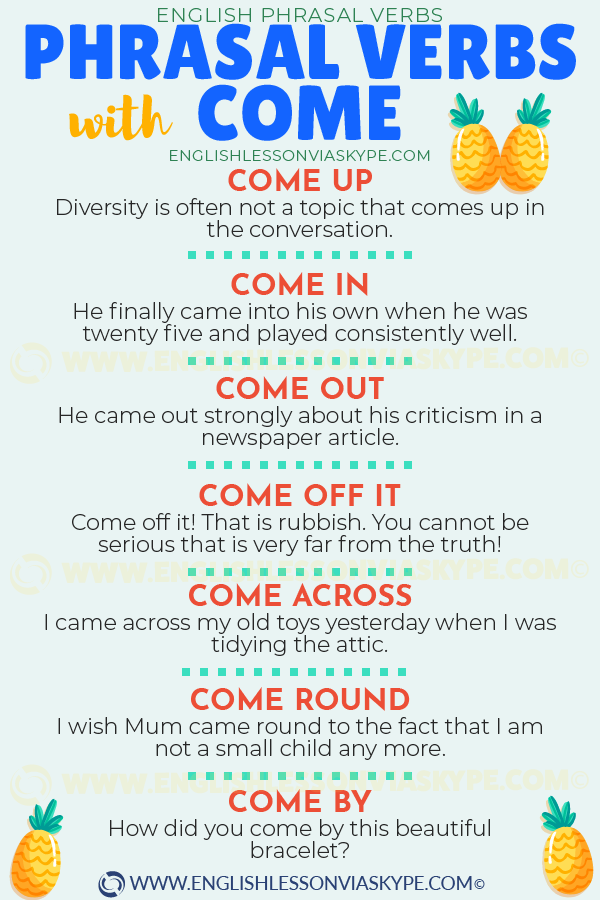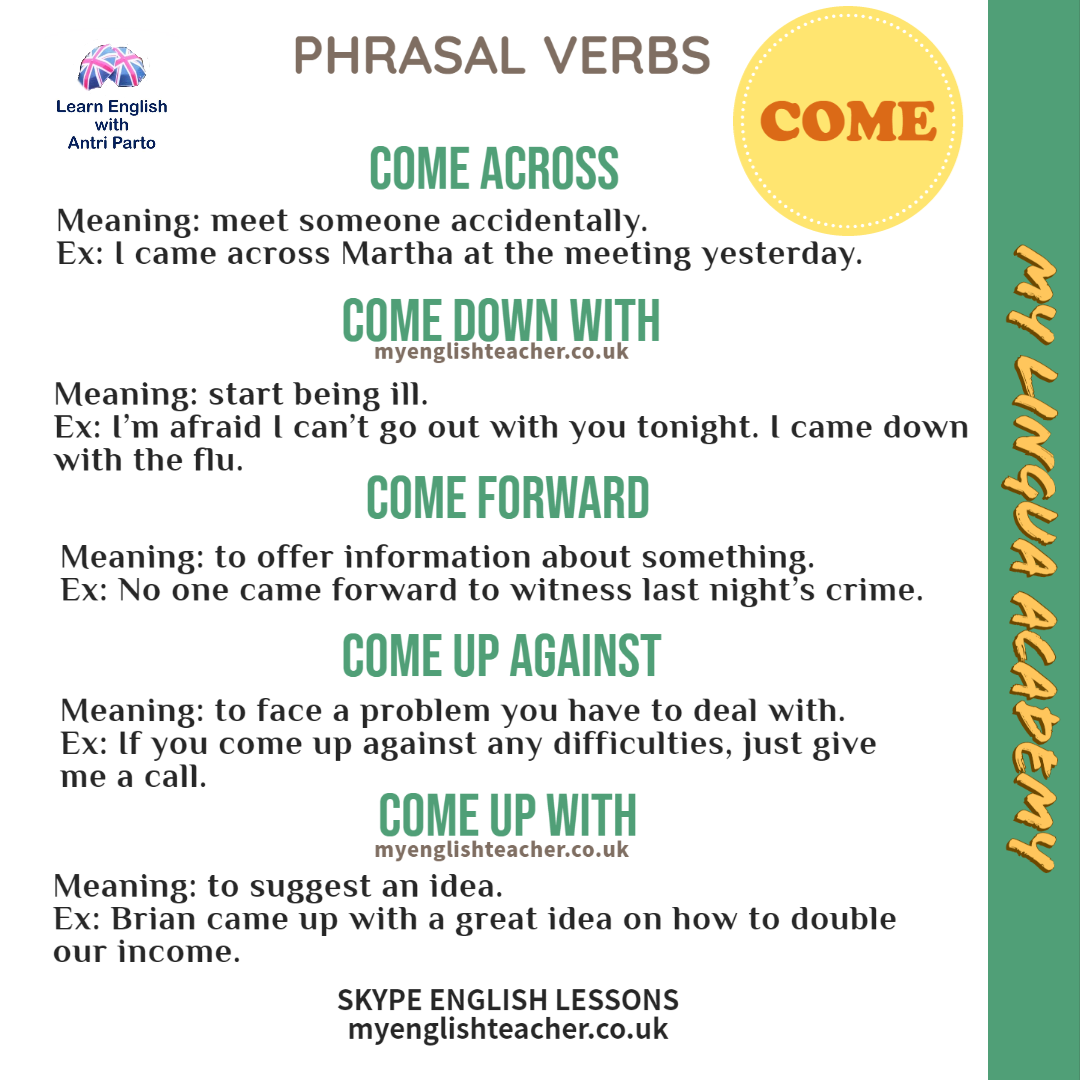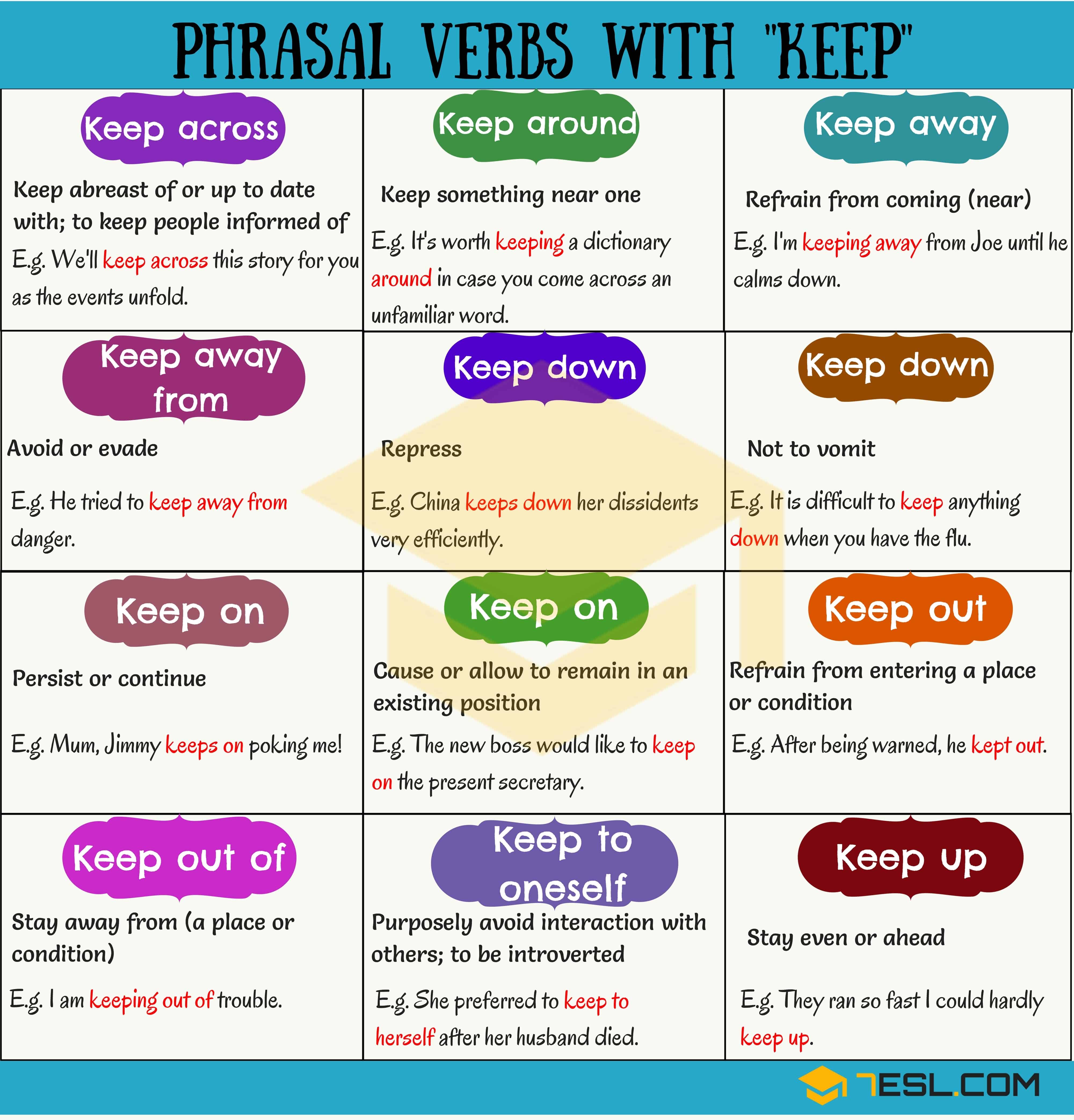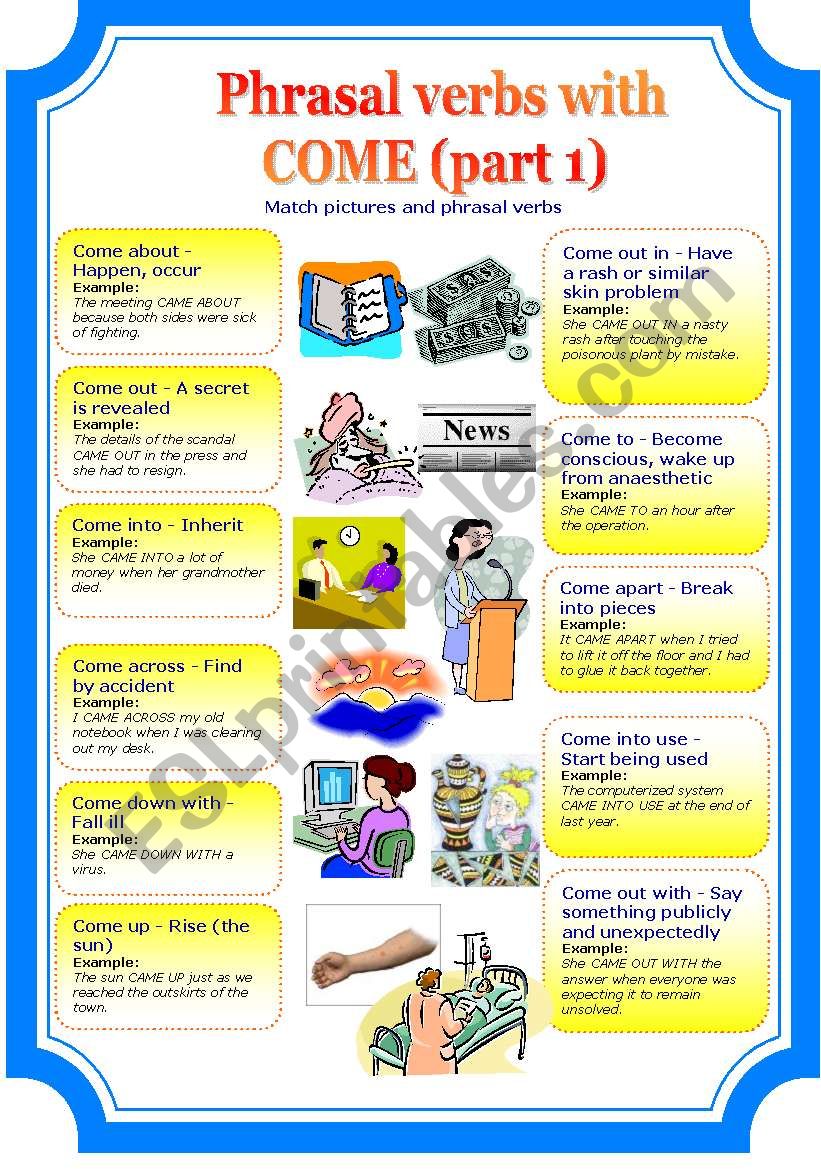
Phrasal Verbs COME in English English Study Here
To come away is a phrasal verb "come" with a flexible meaning. It refers to leaving or departing from a certain place or subject, oftentimes presuming some kind of separation. It can also mean traveling somewhere. Example: I tried to put on my old dress, but when I pulled at the zipper, the dress came away at the seam.

Phrasal Verbs = COME • British Academy
Here's the ultimate list of phrasal verbs with "come." Phrasal Verbs with Come "Come about" Meaning and Examples. To happen, to occur, normally by chance. Example. Scientists are still investigating how this pandemic came about. Scientists are still investigating how this pandemic happened. "Come across" Meaning and Examples Meaning 1

Phrasal Verbs with COME
Answers: (1. came across; 2. come along; 3. come by; 4. coming down with; 5. come forward; 6. come in; 7. come out; 8. come up with; 9. come up with; 10. come to) We hope these phrasal verbs with.

Practice 20 Phrasal Verbs with COMELearn English for free
23 Phrasal Verbs with COME: come across, come around, come up with… Have you ever come across some phrasal verbs that use the verb come? They are often used by native English speakers to express many different things, from disbelief to creating something or finding something.

How to use Phrasal Verbs with COME Learn English with Harry 👴
Phrasal verbs are groups of words in English, made up of a verb and either one or two particles. A particle can be either a preposition, like 'on' or an adverb like 'together'. Phrasal verbs are a frustrating!! Often, one phrasal verb can have more than one meaning. Often they are idiomatic, so the meaning is not obvious.

6 Phrasal Verbs with My Lingua Academy
What's covered on this page We have definitions for 37 phrasal verbs with 'COME' Come about Come across Come along Come apart Come around Come around to Come back Come before Come by Come down Come down on Come down to Come down upon Come down with Come forth Come forth with Come from Come in Come in for Come into Come into use Come off Come off it

Phrasal verbs Come
Phrasal verbs and multi-word verbs - English Grammar Today - a reference to written and spoken English grammar and usage - Cambridge Dictionary

40 Phrasal Verbs with COME in English • 7ESL
Come before. to take higher priority than others; to be brought to a discussion or for consideration. Wendy is such a selfish girl. Her needs always come before anything else. That case will come before the court soon. My dad is such a great man. His family has always come before his career. 8. Tweet.

Phrasal verbs with COME YouTube
The Various Meanings of "Come" The word "come" can have a variety of different meanings, depending on how it is used. When used as a verb, "come" can mean to move towards someone or something, to arrive at a destination, to happen or take place, or to make something happen.

99 Phrasal Verbs with COME Come on, Come in, Come at, Come along
200 common phrasal verbs, with. - meaning. - example sentence. ask somebody out. invite on a date. Brian asked Judy out to dinner and a movie. ask around. ask many people the same question. I asked around but nobody has seen my wallet.

Phrasal Verbs With Come Word Coach
Definition of come about phrasal verb from the Oxford Advanced Learner's Dictionary come about phrasal verb come about (that…) to happen Can you tell me how the accident came about? Questions about grammar and vocabulary? Find the answers with Practical English Usage online, your indispensable guide to problems in English.

Phrasal verbs come английский Pinterest English
Grammar explanation Phrasal verbs are very common in English, especially in more informal contexts. They are made up of a verb and a particle or, sometimes, two particles. The particle often changes the meaning of the verb. I called Jen to see how she was. ( call = to telephone) They've called off the meeting. ( call off = to cancel)

Phrasal verbs with Keep (2) 7 E S L
The verb 'come' is used in at least 35 phrasal verbs! Each phrasal verb can have various meanings, depending on context. For example, take off can mean remove clothing (please take your shoes off), to suddenly become successful (the new product really took off) or to leave the ground (the aeroplane took off)..

Phrasal verbs with Important Grammar Rules ROBOHAND
The phrasal verb come on has multiple uses, but when used as an exclamation, it can be encouragement for someone to do something, or it can mean something like "Stop being ridiculous!" "I don't want to dance. I'm no good at it; everyone will laugh at me." " Oh, come on! Nobody here cares whether or not you can dance." #6 - come out

Phrasal verbs with COME (part1) ESL worksheet by Makol
Grammarly Updated on May 15, 2023 Grammar Phrasal verbs are two or more words that together act as a completely new verb with a meaning separate from those of the original words. For example, pick up means to grab or lift, very different from the definitions of pick and up alone.

40 Phrasal Verbs with COME in English • 7ESL
Here's a more detailed list of common English phrasal verbs: 1. Bring up — To mention something. Type: Separable, transitive. Mark was sick and had to miss the party, so please don't bring it up, I don't want him to feel bad for missing it. 2. Bring on — To cause something to happen, usually something negative.